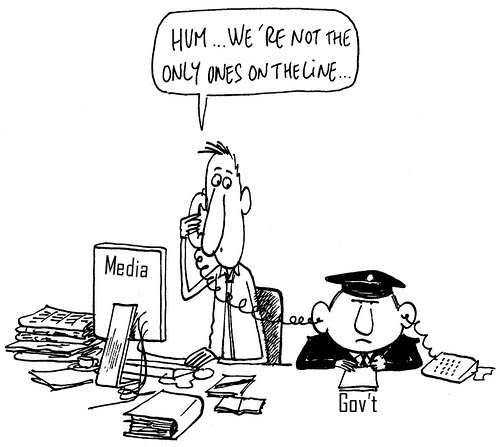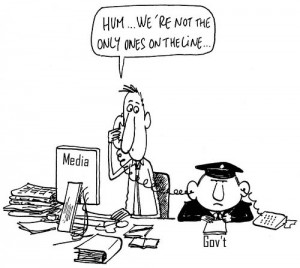
MANILA (Mindanao Examiner / July 21, 2013) – International peace activists and human rights defenders attending the International Conference for Human Rights and Peace in the Philippines condemned the deployment of military and police surveillance agents in their activities.
Human rights group called Karapatan said security personnel of the conference apprehended a police officer and suspected military informant in two separate incidents.
Caught taking photos of delegates and conference vehicle plate numbers was a certain Kenneth Mendez, who claimed to be a reporter but could not mention what media outfit he was working for.
Also apprehended was PO2 Emilio Fetalvo Jr. who admitted being ordered by his senior officer who was only identified as Superintendent Pelibilio to conduct surveillance of the conference.
Fetalvo was previously seen shadowing staff members of the Karapatan national office.
“I am indignant at the covert surveillance of conference participants . But we will not be intimidated from joining the Filipino people in the vigorous protests tomorrow,” Paul Murphy, an Australian labor rights activist, said in a statement sent by Karapatan to the Mindanao Examiner.
Delegate Ron Gochez, an American teacher who joined a team that visited Davao City’s militarized Paquibato district recently, described his group’s encounter with soldiers in the area: “We were there for less than five minutes and this is what we saw – the military, and military intelligence operatives taking pictures when we arrived, taking pictures of the people and trying to intimidate the people.”
“The people do not want any more militarization. They want schools, they want health care, they want roads,” Gochez said in the same statement.
Ironically, the issue of “national security” and the consequent violation of the people’s socio-economic and civil and political rights was the focus of discussions in the past two days of the ICHRPP.
Such concern was summed up by international lawyer Anna Morris from the U.K., who said the concept of national security “should center on securing the economic and political rights of the people. It is those rights that the President should put in the heart of his State of the Nation Address on Monday.”
Morris said: “This is my third visit here in the Philippines and on each occasion, the level of repression increases, not decreases, against those who are legitimately engaged in the protection and representation of the vulnerable, the dispossessed and the poor. In a modern society, it should be that impunity decreases and accountability increases, but sadly that is not the case in the current government.”

